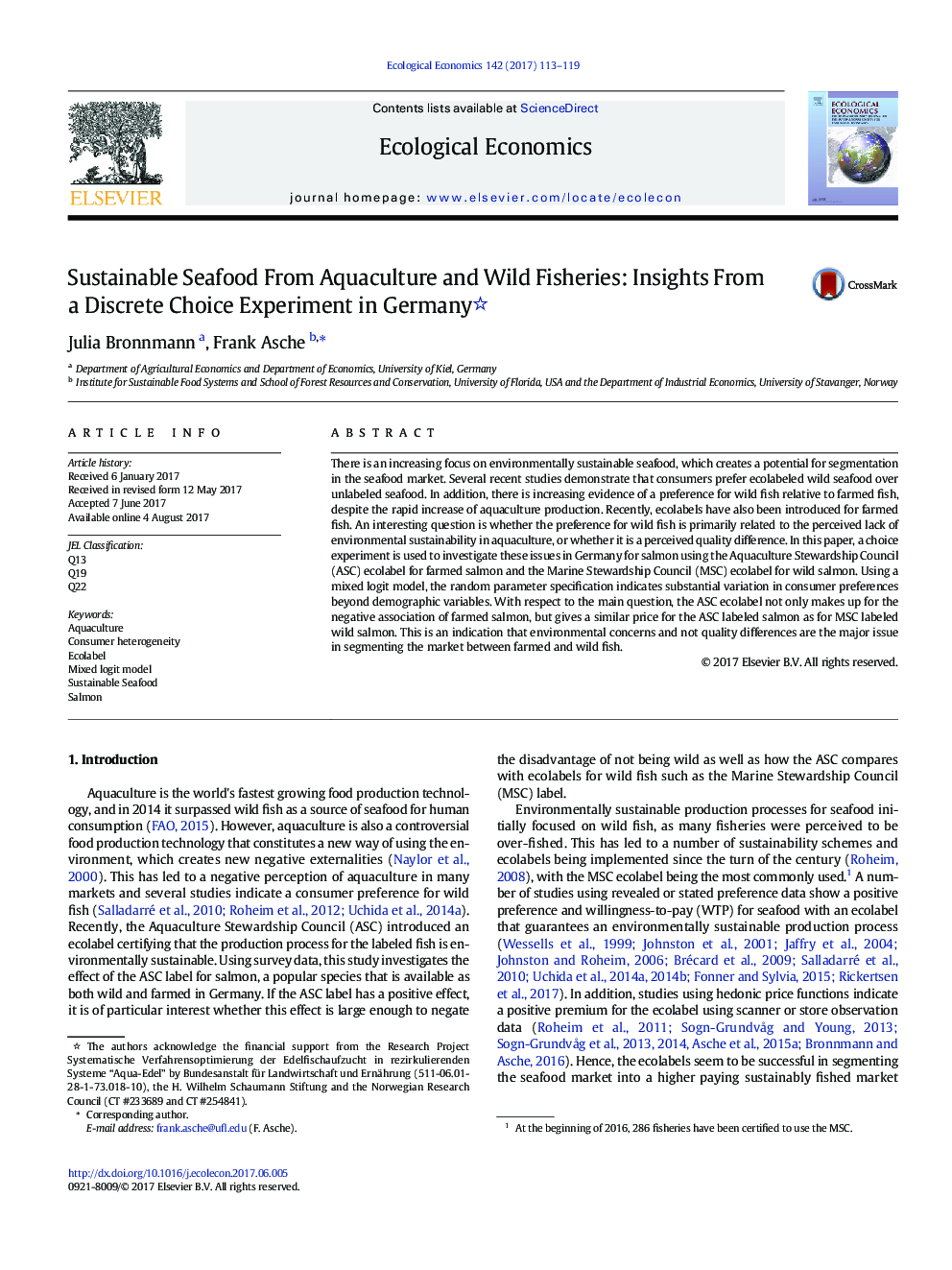| Article ID | Journal | Published Year | Pages | File Type |
|---|---|---|---|---|
| 5048553 | Ecological Economics | 2017 | 7 Pages |
There is an increasing focus on environmentally sustainable seafood, which creates a potential for segmentation in the seafood market. Several recent studies demonstrate that consumers prefer ecolabeled wild seafood over unlabeled seafood. In addition, there is increasing evidence of a preference for wild fish relative to farmed fish, despite the rapid increase of aquaculture production. Recently, ecolabels have also been introduced for farmed fish. An interesting question is whether the preference for wild fish is primarily related to the perceived lack of environmental sustainability in aquaculture, or whether it is a perceived quality difference. In this paper, a choice experiment is used to investigate these issues in Germany for salmon using the Aquaculture Stewardship Council (ASC) ecolabel for farmed salmon and the Marine Stewardship Council (MSC) ecolabel for wild salmon. Using a mixed logit model, the random parameter specification indicates substantial variation in consumer preferences beyond demographic variables. With respect to the main question, the ASC ecolabel not only makes up for the negative association of farmed salmon, but gives a similar price for the ASC labeled salmon as for MSC labeled wild salmon. This is an indication that environmental concerns and not quality differences are the major issue in segmenting the market between farmed and wild fish.
